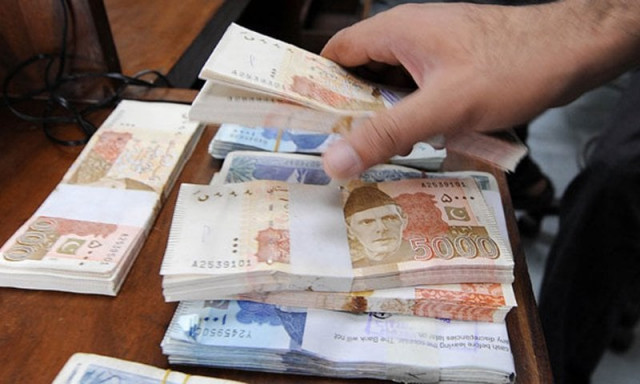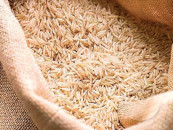Big Six to collectively post record profit of Rs130b
Rise comes despite significant regulatory, tax policy changes introduced last year

PHOTO: AFP/FILE
Big banks are expected to collectively post a record profit of Rs130 billion for 2015, analysts say.
Consisting of Habib Bank (HBL), National Bank of Pakistan (NBP), United Bank (UBL), MCB Bank, Allied Bank (ABL) and Bank Alfalah (BAFL), the so-called Big Six are expected to post collective earnings of Rs129.9 billion for 2015, up 12% from a year ago, according to analysts at Topline Securities.
Despite tax hike, big banks continue to shine
The year-on-year rise in the profitability of the Big Six is intriguing because of some significant regulatory and tax policy changes introduced last year.
On the one hand, the State Bank of Pakistan (SBP) has consistently brought down the benchmark interest rate in the last year and a half in view of declining oil prices, which kept inflation under check. The interest rate has come down 350 basis points since the start of 2014-15 and currently stands at a multi-year low of 6%.
As a result, the difference between average lending and deposit rates, also called banking spread, reached the lowest level in 11 years in 2015. The weighted average banking spread stood at 5.56% last year, shrinking by 43 basis points from 2014.
On the other hand, the government also increased the rates of different taxes that banks pay on multiple avenues of income.

Instead of paying taxes at rates ranging from 10% to 25% on different sources of income, such as dividends and income from mutual funds, banks had to pay a uniform tax rate of 35% on all sources of banking incomes June onwards. This dented the bottom lines of banks, as their overall tax liability increased in 2015.
Faysal Bank posts Rs3.4b profit
Another challenge that banks faced in 2015 arose out of the imposition of a levy on banking transactions carried out by non-filers of income tax returns. Every transaction exceeding Rs50,000 in a day was subjected to a 0.6% tax (later reduced to 0.3%) to increase the number of filers.
So how are the banks expected to grow their bottom lines in 2015 despite such adverse circumstances?
According to Topline Securities analyst Umair Naseer, the increase in earnings of the Big Six should be attributed in part to a major investment in high-yielding, long-term Pakistan Investment Bonds (PIBs). These investments constitute more than a third of the big banks’ total deposits.
In addition, volumetric deposits’ increase of around 10% by big banks also contributed towards their overall growth, he added.
The fact that big banks invested heavily in government securities while ignoring their primary job of extending loans to businesses is reflected in two key ratios: investment-to-deposit ratio (IDR) and advance-to-deposit ratio (ADR).
Naseer says big banks’ IDR reached an all-time high of 71% whereas their ADR dropped to just 44% by the end of third quarter of 2015, the latest period for which official data are available. This means big banks diverted a greater chunk of their deposits to investment instruments while reducing the quantum of loans they extended as a percentage of deposits.
In addition, big banks’ earnings are expected to grow on the back of increased capital gains that banks have been realising on government securities and shares in 2015, Naseer says.
Banks’ combined profit amounts to Rs148b for Jan-Sep
“We anticipate capital gains to grow by 79% to Rs37 billion in 2015. In Jan-Sept, big banks had reported capital gains of Rs30 billion, up 109% year-on-year,” he adds.
Published in The Express Tribune, February 6th, 2016.
Like Business on Facebook, follow @TribuneBiz on Twitter to stay informed and join in the conversation.


















COMMENTS
Comments are moderated and generally will be posted if they are on-topic and not abusive.
For more information, please see our Comments FAQ